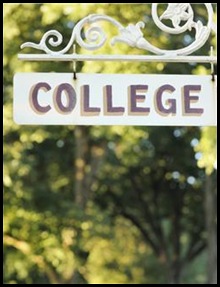 As an English composition tutor working at a community college, I read over about 30 assignments a week and talk in-depth with every one of my students about what they’re struggling with. This gives me a unique insight into why so many students who have graduated from high school still aren’t ready for college-level work. The biggest problem: Many college students can’t read or write.
As an English composition tutor working at a community college, I read over about 30 assignments a week and talk in-depth with every one of my students about what they’re struggling with. This gives me a unique insight into why so many students who have graduated from high school still aren’t ready for college-level work. The biggest problem: Many college students can’t read or write.
Sure, they can read the words on a page. But reading is more than a hefty vocabulary, it’s being able to understand and explain what something is about. It’s picking up on the themes and ideas presented in the story, not just the order of events. As a result, my students often completely miss the point of an essay.
The Importance of Writing:
They can also type words on a page, but what no one has bothered to explain to them is that writing is communicating. It’s not about grammar rules or beautiful handwriting—it’s clearly, effectively communicating what you think, feel, or have researched. Writing is talking on paper, so if you learn to capture themes and ideas while communicating verbally, you also learn to write.
In order to teach me how to write, my mom had me start narrating before I was even reading. She’d read me a story and ask me to tell her what I could remember. It felt like a game, but mom’s game taught me several very important things that helped prepare me for college. I learned how to summarize information and sort out the less important ideas from the heart of the piece, how to concentrate while reading or listening, and how to feel comfortable explaining what something was about and also expressing what I thought about it. These are all important tools that a college student needs to succeed.
Thanks to literally years of practicing narration at home, when I got to college and had to write summaries of readings or a research paper that paraphrased other people’s ideas it wasn’t hard because, unlike a lot of other college students, I was ready.
A Diploma Doesn’t Always Equal an Education:
Being ready for college shouldn’t be taken for granted. One student I know who graduated with honors from her high school couldn’t take college-level classes right away because she’d only passed into basic English. She had fabulous grades in high school, but she’d never even written a paper. Shockingly, one of her assignments for a senior paper was a fill-in-the-blanks essay, already outlined down to the sentence (“write a sentence here about your future career”). It required no creativity and very little thought.
Even though she had a high school diploma and had even graduated with academic bling, she wasn’t ready for college. When it came time to write a college paper, her high school grades didn’t mean anything. I honestly think that if she’d never taken an English class a day in her life but had been read to as a child, had lots of practice narrating, and read whatever caught her interest, she would’ve been so much more ready to succeed in academia than she was as an honors student.
Filling in the Gaps:
Based on the academic gaps I regularly see in college students, I believe that whether parents are supplementing their child’s education or homeschooling, it’s very important to focus on reading and narration. I often wish I could go back in time to when my students were children so that I could read to them, have them practice narrating what we read together, and encourage them to read about topics that strike their fancy because then, by the time college rolled around, they’d be ready.
It might seem too simple to actually do much good, but regularly being read to and being given plenty of practice narrating makes a world of difference in a child’s education.
Yeah, there’s a lot of people that simply can’t write. Learn to write before you go to college.
There are a lot of people who, sadly, can’t write. I see it every day at work. I think it’s more than people just needing to learn how to write before attending college, though. It’s not that they’re choosing to not know how to write, they need to be taught and exposed to things (like well-written books, just for example) when they’re still young so that when they’re old enough they’ll be ready for college.
~Kelsey
So true. I work with clients across the agespan and those who are most successful are the ones who learned to really process information at a young age. It is hard work for parents, but the results last a lifetime. Keep up the good work encouraging your students, I am sure they appreciate it!
Absolutely! It does require work on the parents’ part, but the results do last a lifetime. And when the students haven’t been given the opportunity to truly learn how to process information, it’s extremely hard for them to get caught back up later.
Thank you for taking the time to comment. And welcome! 🙂
~Kelsey